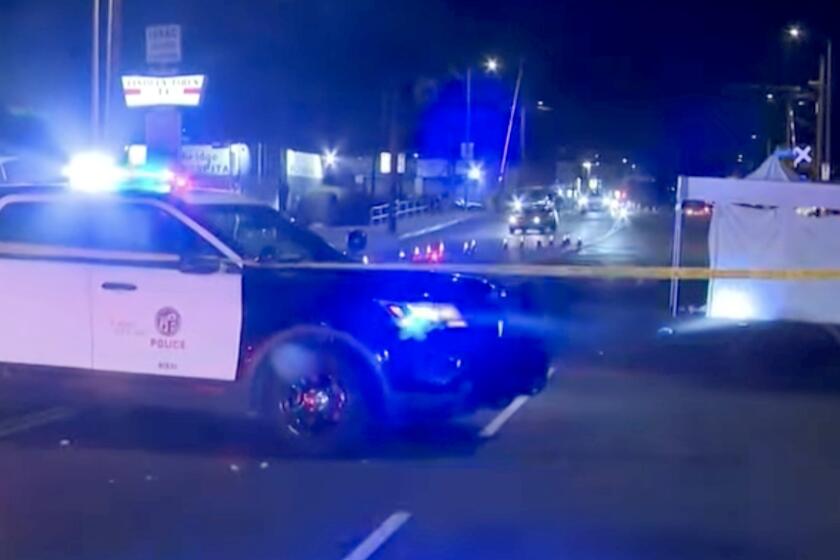Publication raises questions about Contreras’ death
When Los Angeles County labor chief Miguel Contreras died of a heart attack in May 2005, some news reports said he had been stricken in his car after a long day of meetings.
But according to an LA Weekly cover story published Thursday, Contreras was found unconscious at a business that purported to sell herbal medicines on Florence Avenue in South Los Angeles.
In a 911 call, a woman who was with him said the man, later identified as Contreras, was there to have his fortune told, the Weekly reported. Fire Department officials did not respond to repeated requests Thursday to release the tape.
The Weekly reported that six months after his death, police made three arrests related to prostitution at the same address where Contreras was found. Los Angeles Police Lt. Paul Vernon confirmed the arrests Thursday, but said that police had made no connection between Contreras and prostitution, and that it would be unfair to infer one.
No autopsy was conducted, a decision made at the request of Contreras’ family, labor sources told The Times on Thursday. The Weekly, also citing anonymous sources, reported that then-City Councilman Martin Ludlow, who was among the politicians and labor leaders at the Inglewood hospital where Contreras was pronounced dead, made phone calls from the hospital to find a doctor who would sign the death certificate so there would be no autopsy.
Asked about that Thursday, Ludlow said: “Miguel is a dear friend. The stories surrounding his passing are very, very unfortunate. Those close to him and his family who arrived in the hospital did so to offer their comfort and support and prayers. And I’m unaware of any improper actions taken by anyone on that tragic evening or since then.” He declined to elaborate.
Contreras, 52, was executive secretary-treasurer of the Los Angeles County Federation of Labor, the group’s top post; his widow, Maria Elena Durazo, has since been elected to the post.
She declined to comment when approached at a Democratic campaign event Thursday morning.
Other union officials said that the details of Contreras’ death did not interest them and that the loss of a friend and a labor leader with strong strategic sense was more important.
“I’d just like to see Miguel be able to rest in peace,” said Pat McOsker, president of the city firefighters union.
Robbie Hunter, president of Ironworkers Local 433, said of the report, “I don’t care,” and pointed to a downtown skyscraper, the construction of which cost the lives of three ironworkers. “That’s what I care about -- we pay a price for building this city.”
“It’s an outrage,” Peter Dreier, an Occidental College professor who is close to the city’s labor movement, said of the article.
A spokesman for Los Angeles County Supervisor Mike Antonovich, who sent a letter to the coroner’s office inquiring about the lack of an autopsy, said he had received a response and was satisfied that no autopsy was needed. Capt. Ed Winter of the coroner’s office said officials there were standing by their handling of the case.
Mayor Antonio Villaraigosa, a close friend of Contreras and a councilman when he died, said Thursday he had no information that questioned or undermined the coroner’s official report of the labor leader’s death.
The Weekly came under criticism from columnist Harold Meyerson, who is departing the paper after nearly two decades. In an e-mail to the Weekly staff also distributed by union officials, Meyerson, a friend of Contreras, wrote that the paper “had crossed a line” into tabloid journalism.
“We’re not covering Miguel’s private life; we’re covering his private death, and it’s hard for me to see how the circumstances of his death had public consequences,” he wrote.
In an e-mail reply that was widely circulated outside the Weekly, Alan Mittelstaedt, the story’s editor, said that such issues had been debated.
“We found, however, the mystery of Miguel’s final hours, and the questions it raises about the performance of a crucial public institution -- the coroner’s office -- too important to ignore,” he wrote.
*
Times staff writer Jim Newton contributed to this report.
More to Read
Sign up for Essential California
The most important California stories and recommendations in your inbox every morning.
You may occasionally receive promotional content from the Los Angeles Times.










